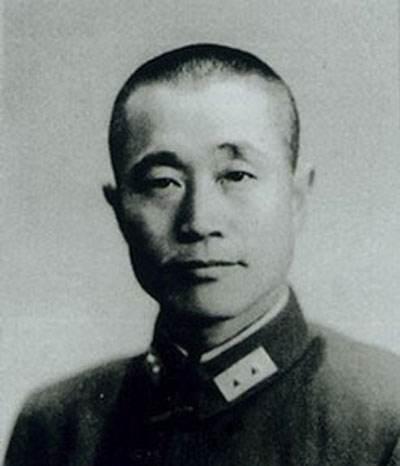After the Liberation War, among the hundreds of senior prisoners of war of the Nationalist army held in Gongdelin, there were many roles such as the commander of the large corps, the commander of the appeasement district, and even the deputy commander-in-chief of the crackdown, and these people were also representatives of the ruling faction who had commanded the Kuomintang army on the front line and had actual army control. Of course, during the Gongdelin period, they had long lost military power, and their identities were only reformed personnel. Having said that, which of the 4 generals in the prison had the highest military power? Together, they even commanded nationalist troops of more than a million men. Let's take a look.

First place, Du Yuming. Total number of troops commanded: 800,000. In the 1948 Battle of Huaihai, Du commanded 7 mobile corps (all the old units of the Jiangbei Central Department), plus a total of 800,000 troops directly under the Suijing District and Xu Zongzong, and fought to the death with the two field armies of our army, Huaye and Nakano, on the vast battlefield. Originally, these troops were not under the command of Du, but should be under the command of General Liu Zhi, but the top brass of the Nationalist army, out of personal command ability and the evolution of the war situation, pushed Du Yuming to the position of commander in the middle of the campaign. Du was nominally only the deputy commander-in-chief, but the actual military power was higher than that of the second-class general, and the fate of the victory or defeat of the nationalist army in the entire war was hanging on this person's shoulders at this time. However, the views of all parties have always been that Du should not bear the main responsibility for the defeat of Huaihai, but should mainly affirm his military ability.
Second place, Fan Hanjie. Number of troops commanded: 150,000 people. During the Battle of Jinzhou in 1948, although Fan Hanjie held a total of 150,000 troops and horses of Lu Junquan's 6th Corps and other local troops, it seemed that there were sufficient troops, but he was in an extremely embarrassing situation. The besieging Dongye army not only doubled in number, but also had a dense firing position of nearly a thousand artillery pieces that the Nationalist army had never seen before. Not only Fan Hanjie, but also whoever guards Jinzhou is impossible to complete. The loss of this place is a strategic problem of the Nationalist army in the northeast region, and it is not all Fan's responsibility. On the contrary, his and Lu Junquan's performance when they defended the city was relatively calm and reasonable, causing more than 20,000 casualties to Dongye.
Third place, Chen Changjie. Number of troops commanded: 130,000 people. Chen's situation is similar to fan Hanjie above, and both belong to the undoing. Whether it is 130,000 people or 150,000 people, they are heavy soldiers without comparison. However, Chen Changjie relied on these people, and it was too difficult to defend a big city like Tianjin when more than 800,000 Dongye troops were completed in the south. Moreover, Chen belonged to the concubine line of Commander-in-Chief Fu, but most of the troops defending the city were from the central department, and the command was a problem. In the end, in the face of more than 300,000 powerful Dongye warriors, the 130,000 nationalist troops in Tianjin city persisted for more than a day, that is, declared collapse.
Fourth place, Huang Wei. Number of troops commanded: 120,000 people. Objectively speaking, although Huang Wei's troops were the least among the four people, the level of weapons and the combat effectiveness of the soldiers were even stronger than the sum of more than 200,000 people, Fan Hanjie and Chen Changjie. Because in the hands of Huang Wei in 1948, it was the strongest field corps of the Nationalist Army in central And even East China, the 12th Corps of the National Revolutionary Army. After the regiment was surrounded by Nakano, it was able to hold the position with only a circle of trucks and jeeps, which showed that its degree of mechanization was simply a luxury under the conditions of war at that time. However, due to tactical misconduct (Huang Wei's command level has been criticized), the elite troops of the 12th Corps were all buried on the Huaihai Battlefield.